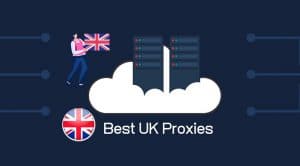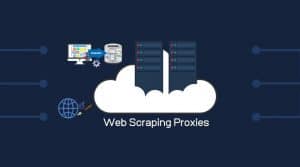Are you looking for the best tool to detect VPN and proxy traffic? Then you are on the right page. The below article highlights some of the top VPN and proxy detection software out there you can use to detect users using proxies and VPNs.
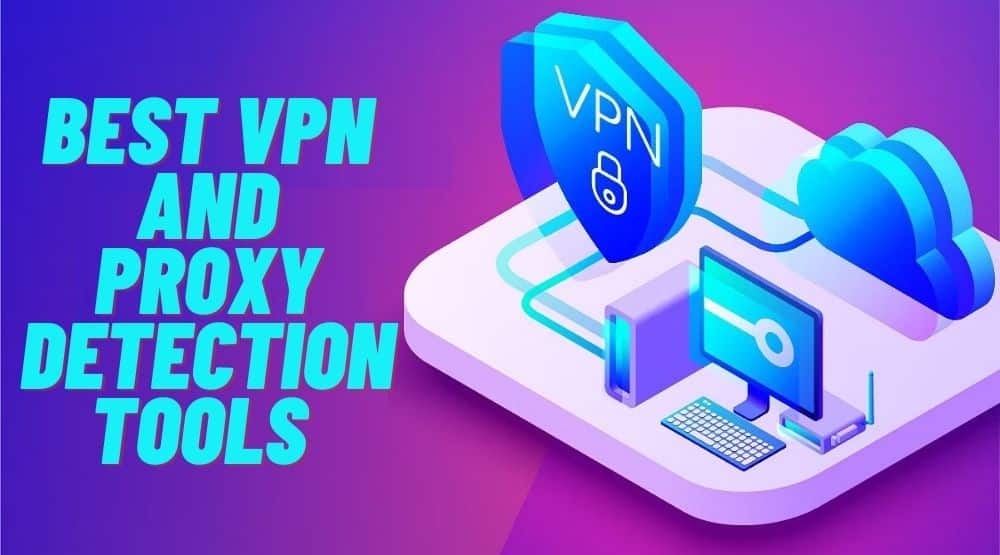
Overview of Best VPN and Proxy Detection Tools
- SEON IP Analysis Module — Overall Best VPN/Proxy Detection Tools
- IPInfo Privacy Detection API — Best for Smart IP Masking Techniques
- IPQualityScore — Best for IP Fraud and Reputation Score
- GeoGuard — Best for Integration with Third-Party Anti-Spam Tools
- AbuseIPDB — Best for Identifying Abused IP Addresses
Best VPN and Proxy Detection Tools
Tools like proxies and VPNs make it easier for Internet users to hide their IP addresses. While these have legitimate use cases, they are also some of the base tools for cyber criminals and this that want to circumvent your anti-spam and anti-fraud system. As a site owner, you will need to keep all traffic routed via proxies and VPN servers away from your web property if you want to avoid spam and fraud on your system.
And that is where proxy/VPN detection tools come in. These are tools that have been developed to detect if an IP address is most probably used as a proxy in other to block it. There are a good number of these tools out there. However, if you want to make use of the best you can get, then you need to read our article. We have researched some of the best options out there and below are our recommended VPN and proxy detection tools.
1. SEON IP Analysis Module — Overall Best VPN/Proxy Detection Tools
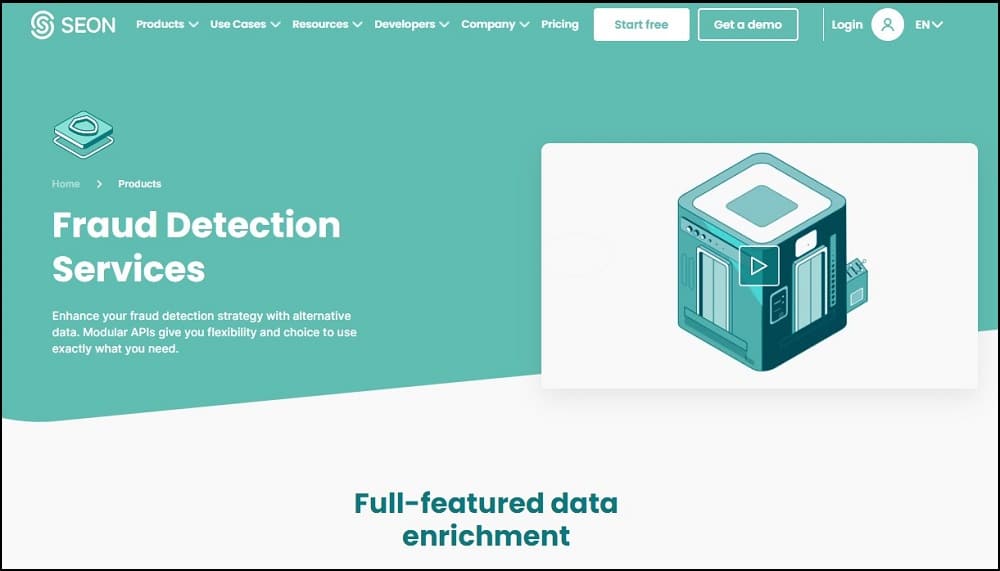
The SEON service is a full package for web fraud detection which can help you with device fingerprinting, behavioral analytics, and IP analytics, among others. Our focus here is their IP analysis module which you can use to detect proxies, VPN servers, TOR-routed traffic, and even abused IPs.
This tool can provide you with information on whether an IP is a proxy, VPN, or TOR node. Interestingly, it also has the power to flag suspicious data centers and detect open ports to see whether the IP has been hijacked by hackers.
This IP analytic tool does check for spam with by running an IP via over 60 DNSBL databases. It is available as an API and as such, can be accessed using any programming language of choice. Pricing for the service starts from $299 but there is a highly limited free tier.
Why we like SEON IP Analysis Module
- Accurate IP address analysis: The module can accurately detect the use of VPNs and proxies by analyzing IP addresses and cross-referencing them with a comprehensive database of known proxy and VPN IP addresses.
- Behavioral analysis: In addition to IP analysis, the module also takes into account user behavior, including browsing patterns, session duration, and the use of anonymous web browsers, to identify potential instances of VPN or proxy usage.
- Real-time monitoring: The SEON IP Analysis Module continuously monitors incoming traffic in real-time, providing an immediate alert if it detects suspicious activity or the use of a VPN or proxy.
- Integration with other tools: The module can be integrated with other SEON tools, such as fraud prevention and risk analysis solutions, to provide a comprehensive and layered approach to security.
- Easy implementation: The module is easy to integrate with existing systems, using APIs and SDKs to ensure a seamless and hassle-free implementation process.
2. MaxMind — Best SEON IP Analysis Alternative
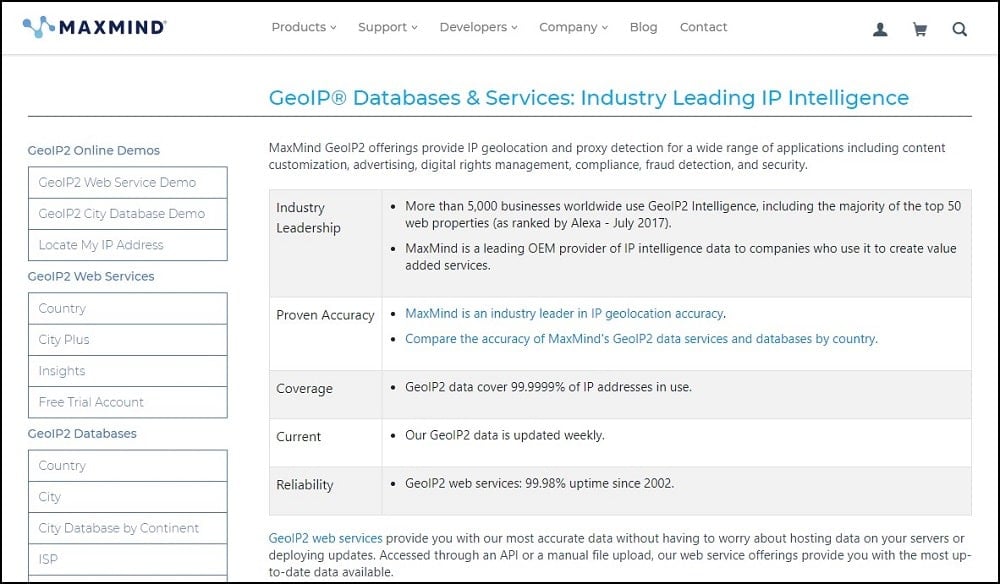
MaxMind has been an industry leader in the area of IP analysis and fraud detection and prevention. It has got an IP intelligence service that you can use to check whether an IP address is a proxy or other proxy-like tools such as VPN and TOR exit node. Using this tool, you can tell when someone is trying to mask his IP address to carry out tasks he would normally not be allowed to carry out on your website.
However, as in the case of SEON and other credible IP masking detection tools out there, just using one’s IP is not enough. You need to get other data to augment and make the right decision about whether you will want to block a user or not and that is where the minFraud service comes. This is because it is an all-encompassing tool for detecting high-risk IP addresses, flagging suspicious email addresses, and identifying fraud in payments.
Why we like MaxMind's GeoIP2 services
- Accurate geolocation: The GeoIP2 database accurately identifies the location of a device, down to the city level, using a combination of IP address analysis, network information, and third-party data sources.
- Detailed IP information: In addition to location data, the GeoIP2 database also provides a wealth of information about the IP address, including its ISP, organization, connection speed, and type of connection.
- Fraud prevention: The GeoIP2 database can help prevent fraud and cyber attacks by identifying and blocking high-risk IPs or devices based on their location or other data points.
- Personalization: By using geolocation data, businesses can personalize their content and services based on a user's location, improving the user experience and driving engagement.
- Mobile app support: The GeoIP2 database provides geolocation data for mobile apps, allowing businesses to target users with personalized content and services on their mobile devices.
- Easy integration: The GeoIP2 services and databases are easy to integrate with existing systems, with flexible APIs and SDKs available for a range of programming languages.
3. IPInfo Privacy Detection API — Best for Smart IP Masking Techniques
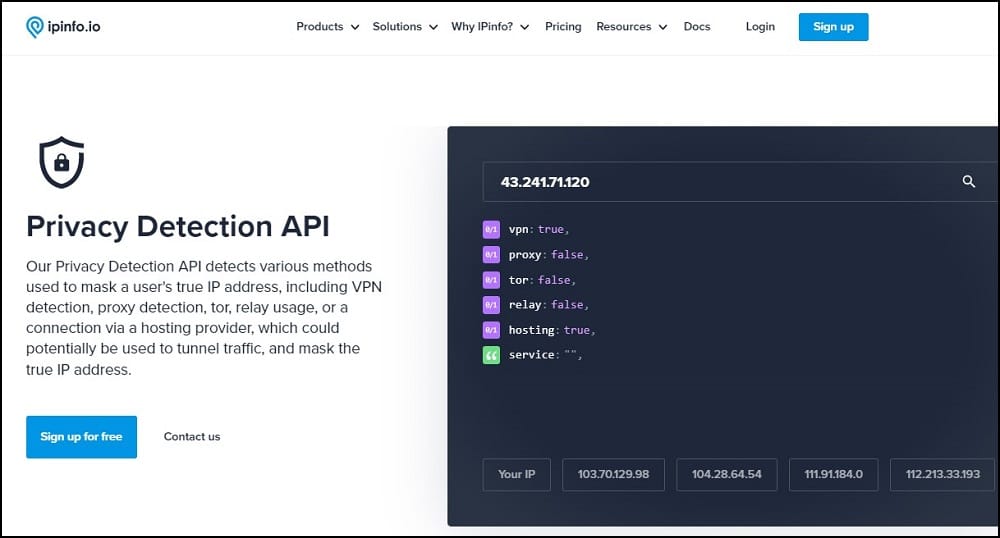
The IPInfo.io tool is a popular tool for looking up IPs and getting their information. While this can be done from the web interface, it also does have an API and allow you to download IP databases. The focus here is their privacy detection API. Using this tool, you are able to see whether the user of the IP is hiding behind any of the IP masking techniques. This gives you detail on whether an IP is a proxy, VPN, or a TOR node.
Also important is the fact that this API can be used to detect Apple Private Relay. This is Apple’s answer to privacy which hide some IP details but is also geo-aware, allowing you to still subject users to content filtering. This tool has got SDKs for most of the popular programming languages out there.
Why we like IPInfo's Privacy Detection API
- Personal information detection: The API can detect potentially sensitive or personally identifiable information associated with an IP address, such as email addresses, phone numbers, and social media profiles.
- VPN/proxy detection: The Privacy Detection API can identify the use of VPNs or proxies, which can be used to hide a user's true IP address and location.
- TOR exit node detection: The API can identify if an IP address is a known exit node for the TOR network, which is often used for anonymous browsing and can be associated with suspicious or malicious activity.
- Threat intelligence: The API provides data on known threats associated with an IP address, such as malware infections or cyber attacks, which can be used to enhance threat intelligence and prevent future attacks.
- Compliance with data protection regulations: The Privacy Detection API can help businesses ensure compliance with data protection regulations by identifying and blocking access to potentially sensitive information or IP addresses associated with high-risk countries or regions.
- Easy integration: The Privacy Detection API is easy to integrate with existing systems, with flexible APIs and SDKs available for a range of programming languages.
4. IPQualityScore — Best for IP Fraud and Reputation Score
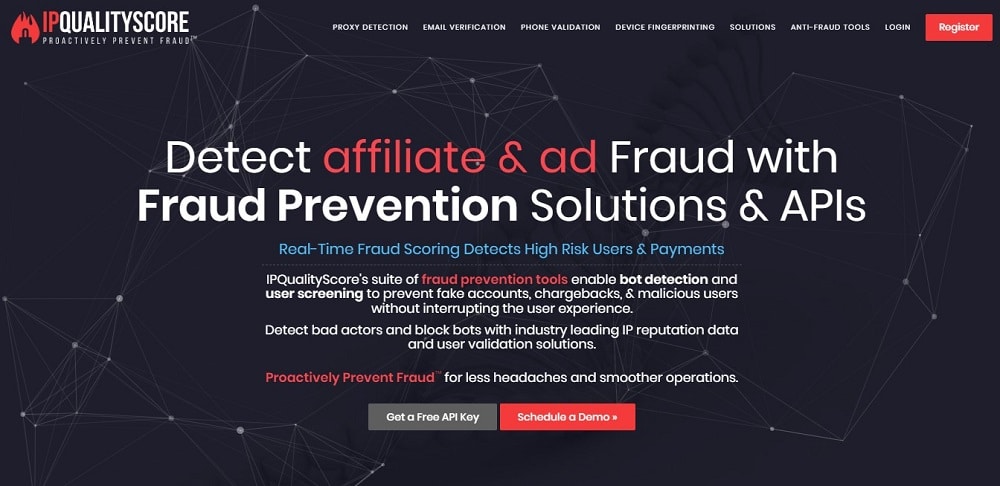
The IPQualityScore is another tool you can use to check in real time whether an IP address belongs to a proxy, VPN, or TOR. This tool is a leading industry tool for fraud protection. It makes use of different combinations of forensic analysis, blacklisting, honeypots, in-house database, and machine learning to detect the use of proxies and VPNs. You can use it to check the reputation of an IP address. Also important is the ability to check for blacklisting and spam.
This means that you are not only checking for the use of a proxy/VPN, but you can also use it to check for spam. This API does have support for what it identifies as IP fraud score and IP reputation score. This provides probabilistic score information about the reputation of an IP. It does have a free tier.
Why we like IPQualityScore
- Fraud prevention: The IPQualityScore platform offers a variety of tools for preventing fraud, including IP blacklisting, email and domain analysis, and machine learning algorithms that identify fraudulent behavior.
- Geolocation data: The platform offers detailed geolocation data, including the location of an IP address, the type of connection, and other network information.
- Reputation analysis: The IPQualityScore platform analyzes the reputation of an IP address, identifying its risk level and the likelihood of fraudulent or malicious activity.
- Email validation: The platform offers email validation services, including email verification, syntax validation, and domain analysis, which can be used to prevent fraud and ensure the accuracy of customer data.
- API integrations: The platform provides easy-to-use APIs that can be integrated with a range of programming languages and applications, allowing businesses to seamlessly integrate IP intelligence into their existing systems.
- Mobile app support: The platform provides geolocation data and fraud prevention tools for mobile apps, allowing businesses to improve the user experience and prevent fraud on mobile devices.
5. VPNAPI — Best for Identifying Public Proxies/VPN
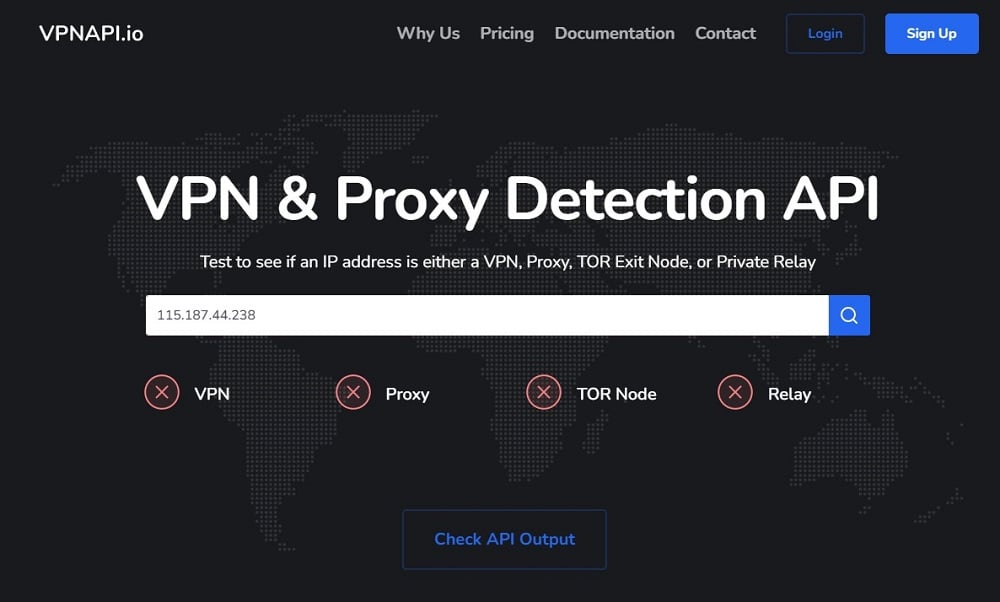
From the name of this tool, you can tell that it is an API. It is quite cheaper compared to the SEON and IPInfo.io privacy detection service. For this service, pricing ranges from $19 to $99 which is considered really cheap. With this, you can’t expect the level of accuracy as the others above. This service is best at identifying public proxies and VPNs. It scans free proxy sites and maintains a huge database of public IPs. Using the data it has, it then uses some in-house methods to identify whether an IP is a proxy, VPN, or TOR.
As per recommendation, you are advised to only use this service for non-critical applications as it is not effective at identifying mobile and residential proxies. It only works for datacenter and free proxies/VPNs.
6. IPHub — Best Free for Small Non-Critical Usage
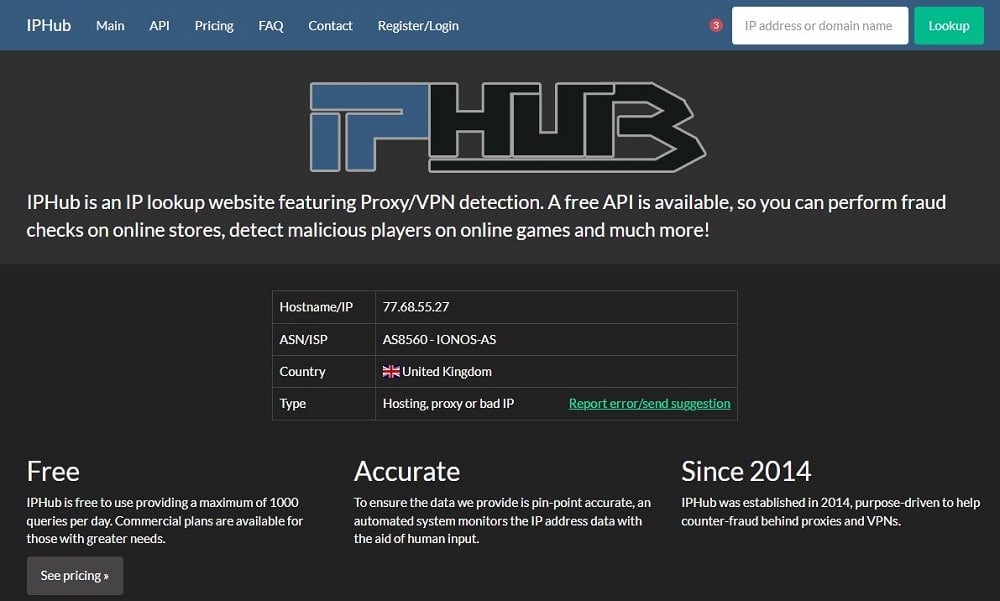
Are you looking for a free tool to use for checking whether an IP address is a proxy or VPN? Then The IPHub service is a good fit for you especially if you need it for non-critical applications. With this service, you can send up to 1000 requests in a day for free. This makes it perfect for sites that do not get an excess of 1000 requests or users. It is not good for detecting sophisticated techniques to hide IPs and as such, just know that the smarter guys will bypass this system.
That is why it should only be used for non-critical use cases. If you need to send more requests per day, the service does offer commercial plans, and the pricing for these packages are equally cheap.
7. GeoGuard — Best for Integration with Third-Party Anti-Spam Tools
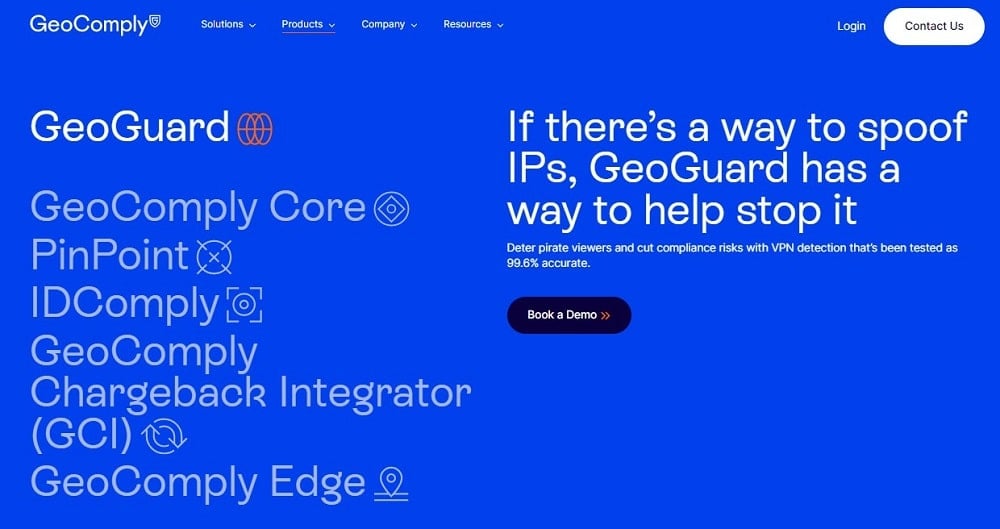
GeoGuard is another tool that you can use to protect your site against IP maskers and anonymizers. The GeoGuard tool maintains a fraudulent IP address database which can be used to block known fraudulent IPs by default. But that is not all, it can also be used to identify hijacked residential IPs which is a feature not many of the tools provided on this list support. This makes it one of the best tools for detecting proxies and VPNs.
Some of its use cases include the ability to predict emerging threats, block traffic from sanctioned users, and prevent fraud, among other use cases. One of the strengths of GeoGuard is that it comes pre-integrated with some popular anti-spam systems such as Akamai and the Amazon WAF.
Why we like GeoGuard,
- Accurate geolocation: GeoGuard provides accurate geolocation data, down to the street level, using a combination of IP address analysis, Wi-Fi triangulation, and other network data sources.
- Compliance with regulations: The platform ensures compliance with a range of regulations, including online gaming and sports betting regulations, by verifying the location of users and preventing access from restricted regions or countries.
- Fraud prevention: GeoGuard offers a variety of tools for preventing fraud, including IP and device profiling, geolocation data analysis, and machine learning algorithms that detect fraudulent or suspicious behavior.
- Mobile app support: GeoGuard provides geolocation and compliance tools for mobile apps, allowing businesses to ensure compliance and prevent fraud on mobile devices.
- API integrations: The platform offers flexible APIs that can be integrated with a range of programming languages and applications, allowing businesses to easily integrate geolocation and compliance tools into their existing systems.
- Real-time monitoring: GeoGuard continuously monitors incoming traffic in real-time, providing an immediate alert if it detects suspicious or fraudulent activity.
8. IP2Proxy — Support Multiple Access Formats
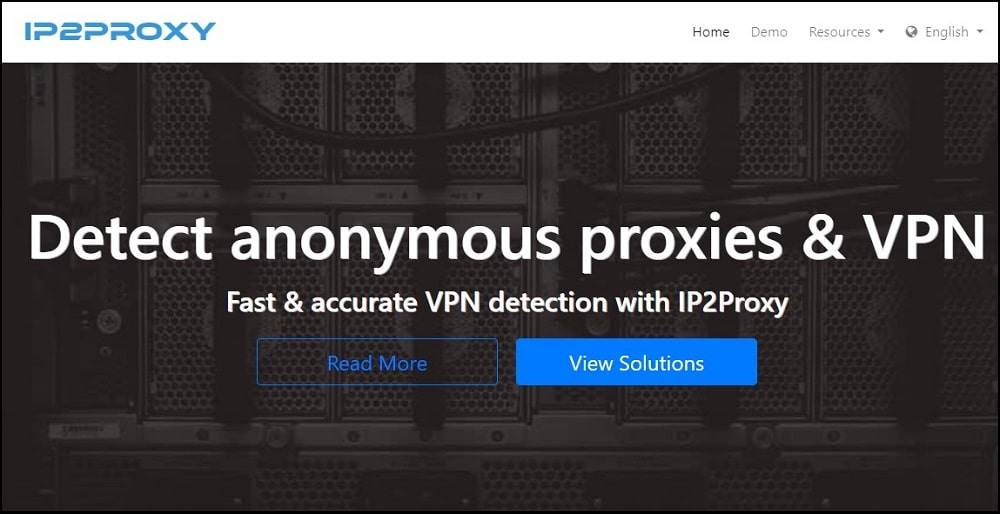
As in the case with most of the privacy detection tools above, the IP2Proxy service allows you to make use of it as an API tool and a web app. Aside from these two popular methods, this service support batch upload as well as the downloading of their IP database. The service maintains a database of IPs used as proxies, TOR exit nodes, and VPN and this database is updated on a daily basis.
If you do not want to use their API service, you can download the database daily at a yearly fee of $399. This service does not only provide you with information about spoofed IPs, but it also gives you information about the threat level of an IP address.
9. AbuseIPDB — Best for Identifying Abused IP Addresses
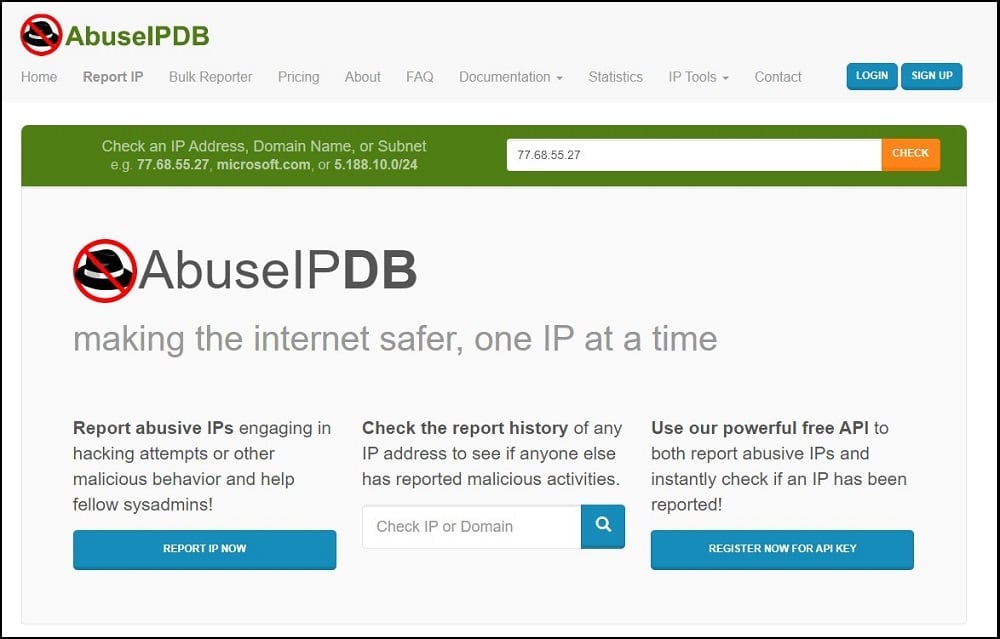
The AbuseIPDB is quite different from the other tools described in the article. While the others provide you details of the likelihood of an IP being a proxy, AbuseIPDB gives you the spam history. The service provides an API that websites can suet report IPs used in abuse — you can also do that manually on their website. The result of this is a huge database of IP addresses that have been used by spammers and scammers.
This is important because you will not only need to know if an IP address is a proxy or not, but you will also need to know if it has been used by spammers and hackers in the past. And AbuseIPDB is the tool that provides you with such information. This tool is free and you can use either its web interface or the API in the case of websites.
Why we like AbuseIPDB,
- IP reputation analysis: AbuseIPDB offers an extensive database of IP addresses that have been reported for malicious or suspicious activity, allowing businesses to identify high-risk IPs and block access to their systems.
- Customizable scoring system: The platform offers a customizable scoring system that allows businesses to assign scores to different IP addresses based on their risk level, allowing for tailored and nuanced threat analysis.
- IP blacklist monitoring: AbuseIPDB monitors IP blacklists in real-time, providing alerts if any IPs associated with a business are added to the blacklist.
- API integrations: The platform offers easy-to-use APIs that can be integrated with a range of programming languages and applications, allowing businesses to seamlessly integrate IP intelligence into their existing systems.
- Reporting system: AbuseIPDB provides a comprehensive reporting system that allows businesses to report suspicious or malicious activity associated with an IP address, contributing to a global network of cybersecurity professionals and improving overall online security.
- WHOIS lookup: The platform offers a WHOIS lookup feature that provides information about the owner of an IP address, including their contact information and other relevant details.
10. GetIPIntel — Best Free VPN/Proxy Detection API
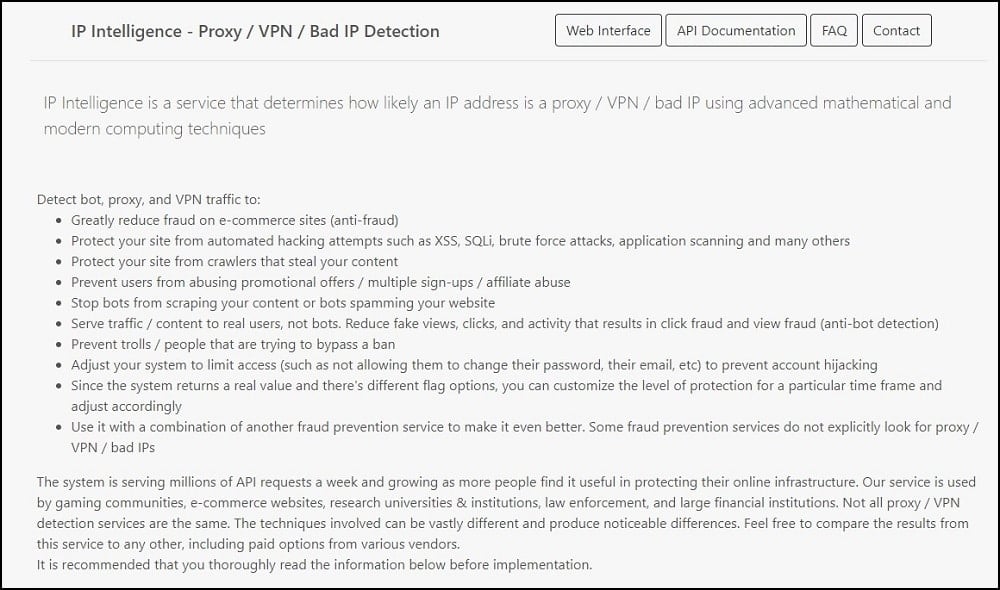
The GetIPIntel is one of the proxy and VPN detection tools out there if you do not have the budget to pay for an IP address intelligence tool. This tool has been around for over 6 years now. With this tool, you can determine whether an IP address is a proxy or VPN. But its usefulness does not end there — it can also be used to determine whereby an IP address is a bad one or not which is another way to look at the reputation of an IP.
Generally, you will not want to allow bad IPs to access your site regardless of whether they are identified as proxies or not. The GetIPIntel tool provides you with an API to use for accessing the service programmatically.
11. Spur — Best for Detecting Residential Proxies and VPN
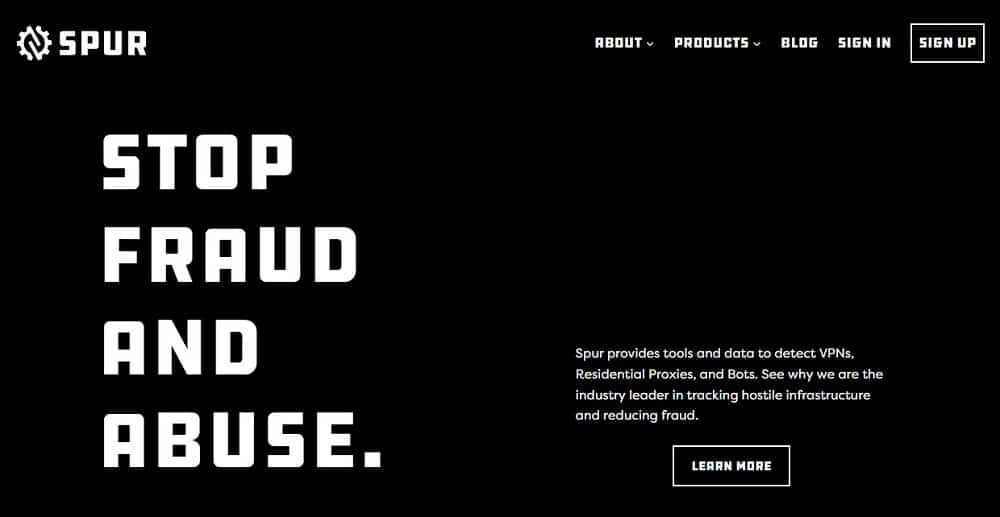
The most daring cybercriminals out there do not use your regular proxies and VPNs, they use their residential counterparts. These counterparts (residential IPs) are products of hijacked PCs and other devices and they can be difficult to detect. And that is where the Spur service comes in. It is an API that you can use to detect whether an IP is from a regular proxy or compromised devices.
They have got the data of over 800 different VPN and proxy providers of which residential proxy services are major. Aside from helping you detect proxy and VPN connections, Spur is also good at detecting bot activities which makes it more than just a regular proxy identifier — it is an anti-spam system on its own.
12. WhatIsMyIP — Best for Individual Lightweight Usage
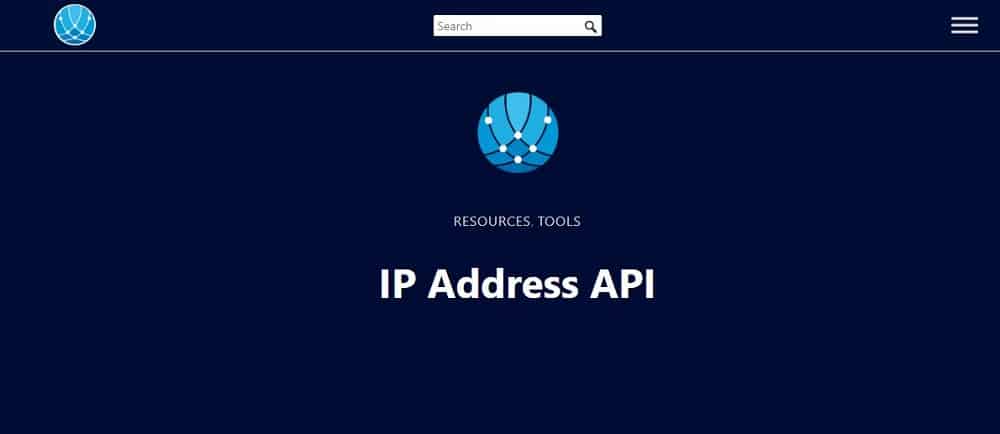
The WhatIsMyIP website is one of the popular websites Internet users use to look up details of their IP address and that of others they get hold of. This tool does offer the ability to check whether an IP address is a proxy or not. It is quite a basic tool and does not really do as much as the other providers do.
It is simple and straightforward but those are the basics that are required. If you want though, you can use their API which offers a highly limited and useless tier with cheap commercial plans available for those that are ready to pay to make use of the service. But I will advise against its usage for commercial critical applications.
13. IPHunter — Simple API for Detecting Fraudulent IPs
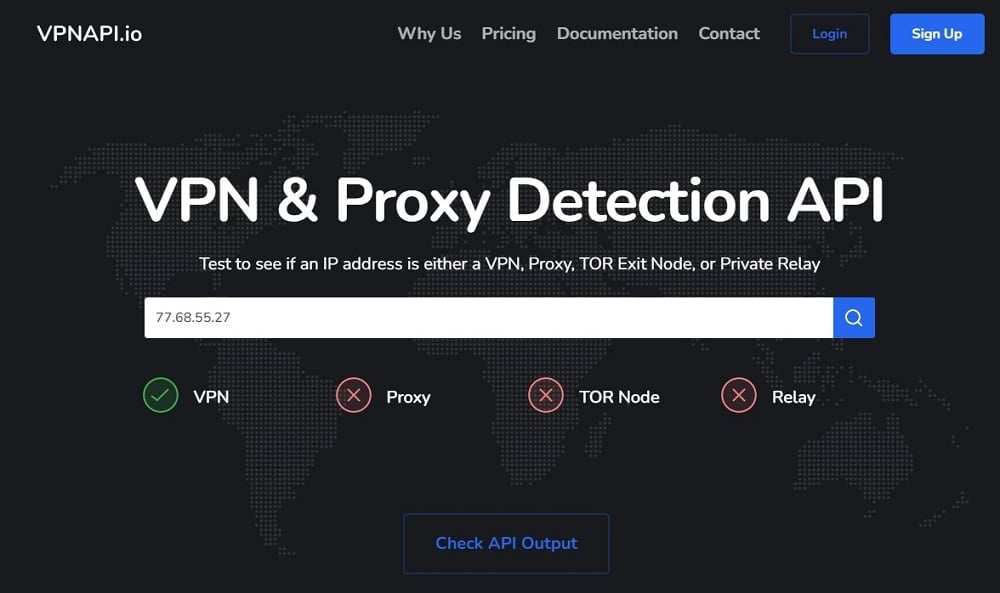
The IPHunter service is another API you can use to detect whether an IP is a VPN/proxy or not. The service has got a database where it logs all known proxy, VPN, and TOR exit node IP addresses, and this database is updated every 5 minutes. Using this and other techniques like looking at the provider and open ports, it is able to tell whether an IP is being used as a proxy or not. The service offers a free tier with 1000 requests daily. If you need to make use of more than this, you will have to opt-in as a paid user. But generally, the pricing can be said to be cheap.
14. ProxyCheck — Alternative to IPHunter
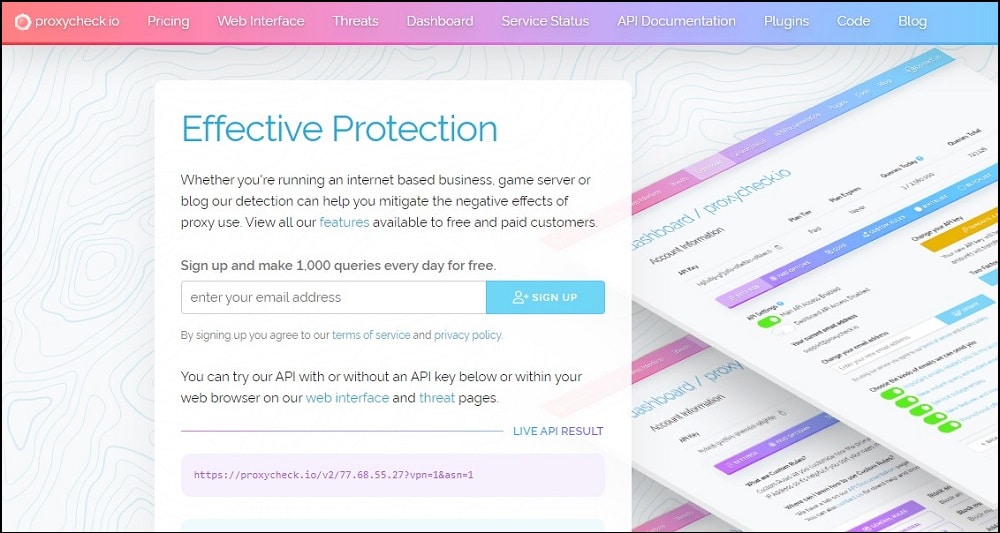
The ProxyCheck service is a lot more like the IPHunter tool. It does take care of the basics which are to provide you with details on whether an IP is a proxy or not. It does not have support for the anti-fraud advanced features you get from the likes of SEON and MaxMind. This tool is available as an API. The documentation is quite basic and easy to understand.
Just look at the URL structure of the example given and you can tell how to make use of it without even looking out for the documentation. Also, the pricing in terms of the free tier is just like that of IPHunter — you get 1000 free requests daily for free.
15. CriminalIP — Best for Identifying Malicious IPs and Links
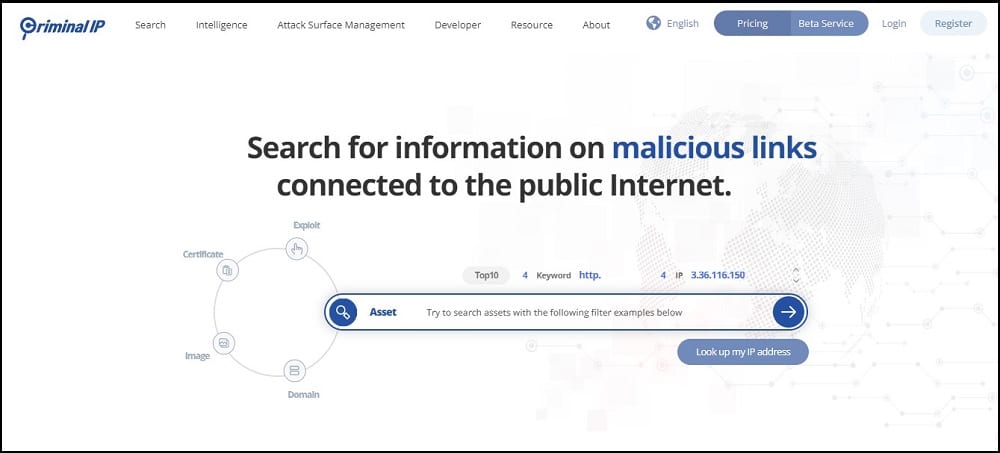
Last on our list is the CriminalIP service. A visit to the homepage of this service will not reveal much as they have a good number of guides and blogs that will make it look like a block. However, digging deeper and you will uncover an easy-to-use API for identifying proxies, TOR IPs, and VPNs.
Interestingly, CriminalIP does not stop there — it also does identify malicious links and domains. This makes it a perfect tool for protecting your users from clicking on harmful domains, making it a good choice for sites with user-generated content. It is a good choice for managing vulnerabilities and attacks on a web property.
FAQs
Q. Can VPN/Proxy IPs Be Detected?
There are a good number of proxies out there that market themselves as undetectable and the reason is that they are residential proxies. While residential IPs make them undetectable on the surface, a little dig and a good number of them are identifiable.
Proxy detection tools like the ones mentioned in the article keep a database of known IPs, check open ports, and get IP sources. These methods and the other in-house methods used can be effective at detecting a good number of these IPs.
Q. How Accurate are Proxy Detection Tools?
The accuracy depends on the specific tool being used and how known the provider of the IP is. IPs from popular proxy providers can easily be detected compared to new providers with no known footprint. It is also true that a good number of proxies can go undetected.
Some of these tools can also identify legitimate IPs as proxies. It is, for this reason, you are advised not to use only these tools to block and IP — they should be used in conjunction with other forms of data including usage data and device fingerprinting to behavioral analysis to avoid blocking legitimate users.
Q. Are Free Proxy Detection Tools Good?
Some of the tools mentioned above are free — that is, you do not need to pay to make use of them. But do they work? While all of them can detect low-quality proxies, most will definitely fail when it comes to identifying real threats.
That is why I mentioned in their description that they should only be used for non-critical use as they will fail. For the best result, you will need to make use of paid proxy detection tools invest time and resources, and have been in the market for a long.
Conclusion
As a way of concluding this article, it is important I stress the need to be careful in trusting these tools 100 percent. This is because sophisticated spammers and fraudsters can still access your site without getting detected. That is why you should imply a good number of techniques so that the chances of identifying someone spoofing their details are quite high.
Aside from checking IP, you should also check for device spoofing, analyze behavior on your system, and lookout for abnormalities. These should increase your chances of keeping them out of your system.



